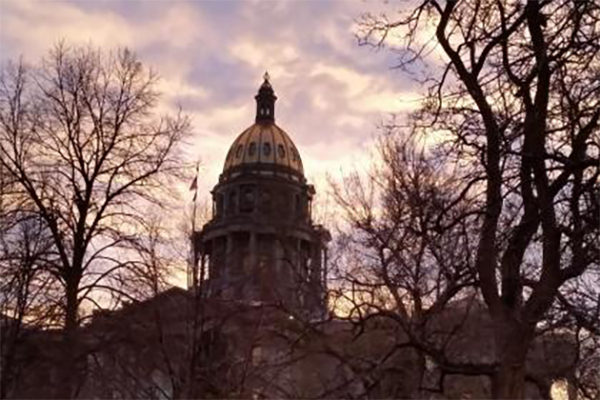A Colorado House bill that officials say incentivizes the closure of coal-fired power plants like the one in Craig passed a key legislative hurdle on Monday, Feb. 11.
HB19-1037 — the Colorado Energy Impact Assistance Act — was sponsored by State Rep. Chris Hansen (D-Denver) and introduced Jan. 4. According to the Colorado General Assembly’s website, the bill seeks to authorize the public utilities commission to approve “transition assistance” bonds for Colorado communities to help retrain workers, subsidize electric rates, and cushion tax revenue loss to lessen the economic blow when a coal-fired power plant closes.
“Transition assistance is defined to include payment of retraining costs, including costs of apprenticeship programs and skilled worker retraining programs, for and financial assistance to directly displaced Colorado facility workers, compensation to Colorado local governments for lost property tax revenue directly resulting from the retirement of a facility, and similar payments, job retraining, assistance, and compensation for directly displaced Colorado workers and local governments in areas that produce fuel used in the retired facility directly resulting from the elimination of the need for fuel at the facility,” the original bill’s summary reads. “The authority must disburse at least 50 percent of the transition assistance that it provides directly to Colorado workers.”
A redraft of the bill obtained by the Craig Press amended that number to 30 percent directly to Colorado workers.
The bill would also create a new state agency — the Colorado Energy Impact Assistance Authority — whose main purpose is to “expend money received from electric utilities that are issuing CO-EIA (transition assistance) bonds … for the purpose of mitigating direct impacts to Colorado workers and communities resulting from the retirement of electric generating facilities.”
On Monday afternoon, Moffat County Commissioner Ray Beck and Routt County Commissioner Douglas B. Monger testified against the bill at a hearing in Denver before Colorado’s House Energy and Environment committee.
The committee voted seven to four Monday along party lines to refer the bill to the House Committee of the Whole, according to Colorado House Energy and Environment Committee staff.
In a news release sent following Monday’s hearing, Hansen said market forces have already put the nail in coal’s proverbial coffin, and his bill seeks to lessen the blow of a closing coal-fired power plant.
“Coloradans are currently on the hook for the outstanding debt on aging power plants,” Hansen said in the news release. “This legislation would allow the state to refinance that debt at a much lower interest rate by authorizing ratepayer-backed bonds. The bill will help hardworking families save money on their energy bills and ensure a soft landing for when an aging power plant inevitably shuts down because of market forces.”
According to a Feb. 6 letter from Beck and Andy Key, chairman and vice-chairman, respectively, of the Associated Governments of Northwest Colorado, members of the group opposed HB19-1037, saying it “incentivizes private industry to accelerate the closure of coal-fired power plants in these communities.”
While the letter states members appreciate the legislature’s attempts to provide lost tax revenue relief and job training, AGNC believes “the provisions of HB1037 will fall far short of what will be necessary to assist these employees and communities.”
Beck, in his capacity as a county commissioner, also signed an additional protest letter from Moffat County’s commissioners to State Rep. Dominique Jackson (D-Aurora), chair of Colorado’s energy and environment committee. In the letter, Beck, joined by Commissioners Don Cook and Donald Broom, said HB19-1037 wouldn’t be good for Moffat County’s bottom line.
“Moffat County’s top 10 taxpayers make up 61 percent of Moffat County assessed value,” the commissioners’ letter reads. “Six of the top 10 taxpayers are directly tied to coal production and electricity generation from coal.”
Commissioners also aren’t convinced the bill’s worker training provisions will be enough to fend off a mass exodus of mine workers from Moffat County once plants close.
“The practicality of retraining has proven ineffective in other coal-affected communities in Colorado,” commissioners wrote in their letter. “The simple reality is skilled labor leaves a community to go to other communities where their labor is needed, rather than switching to what is often a lower-paid career, if new jobs are even available in a coal-affected community.”
In an email, the Craig Press asked Hansen why he sponsored HB19-1030, what assurances he had for families affected by possible plant and mine closures, what other states have adopted similar bills, what specific “alternative financing mechanisms” were used, and what he’d like to say to residents in Craig and Moffat County whose lives depend on coal.
Hansen responded saying his bill aims to help Coloradans affected by plant closures.
“I decided to sponsor this bill to help Colorado through a significant transition,” Hansen wrote in his email response. “We know that over the next decade many older power generation units will be ready for retirement, and it is important to have resources set aside to help communities and workers that will be impacted by these economic decisions. For coal power, in particular, market forces have reduced its competitiveness — a combination of low natural gas prices and rapidly decreasing costs for wind and solar generation options. The bill also delivers significant savings for ratepayers.”
Information on the bill’s next hearing before the House Committee of the Whole was not available from the Colorado General Assembly’s website as of Tuesday.








